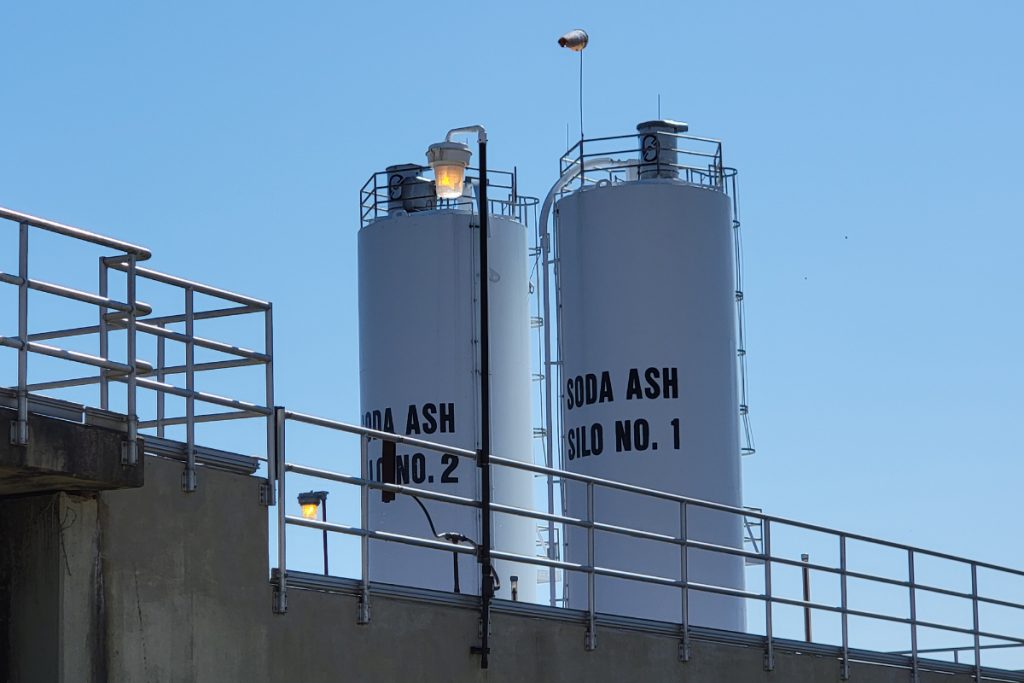JACKSON, Miss.—John Tierre can count the days since Jackson received a citywide boil water notice. He can count the money, too. Every day his restaurant, Johnny T’s Bistro & Blues on Farish Street, bleeds a little more profit thanks to a water crisis with no end in sight.
The challenges start before the restaurant even opens. “First, you’re gonna have to start a couple hours early. That’s already labor in itself, whatever you’re paying per hour. You gotta get in and start boiling water for everything that you’re gonna be using in service,” Tierre told the Mississippi Free Press in an interview in late August, several weeks into the boil-water notice.
“Not only do we have to boil water just to wash dishes, for the bar, for glasses, but there’s the $200 or $300 a day in ice purchases, canned sodas, bottled water, things of that nature,” he continued.
It’s the little things that add up—small considerations that shave into a business model with little flexibility. “Restaurant margins are maybe 10 cents on the dollar. And then imagine that for restaurants that don’t sell alcohol,” Tierre said.
It is unclear when Jackson will emerge from the newest boil-water notice, with the Mississippi State Department of Health enforcing compliance. When the capital city’s water system will be made whole again, freeing the city from a drumbeat of recurrences of the 2021 crisis, is hard to even imagine.
‘A Perpetual State of Emergency’
In early August, after another boil-water notice affecting the entire city, Jackson Mayor Chokwe A. Lumumba invited the media for a brief tour of the O.B. Curtis Water Treatment Plant. The plant is still undergoing winterization upgrades intended to stave off a catastrophe like early 2021, when Jackson spent over a month without any water at all.
The 2022 rolling crisis may be less acute than last year, but it is not less prolonged. “I continue to share with you that our water treatment system is under a perpetual state of emergency,” Lumumba said then. An enormous white dome now covers the O.B. Curtis membrane train facility, hopefully enough to prevent the kind of deep-freeze that collapsed the system before.
But plant leadership credit the soda-ash treatment, contained in two enormous towers nearby, with the current disaster. Soda ash and lime slurry are two methods of treating water, balancing its acidity to ensure the finished product is safe to drink. O.B. Curtis has returned to the lime-slurry method while its soda-ash system is weatherized for use in Mississippi’s oppressive humidity.

That, the mayor claimed, is the cause of the persistent boil-water notices. At a press event earlier this week, the mayor acknowledged that a full implementation of the properly weatherized soda ash system would take up to a year.
“The reason that we were directed to go to soda ash is because it is known that lime slurry has frequently high turbidity readings,” Lumumba said. But, contradicting the statements of the Mississippi State Department of Health, Lumumba has repeatedly asserted that the turbidity from the lime slurry is not indicative of a threat to human health.
“If we’re all in the room together talking about solutions, and that is one of the known factors, that is why we have had objections to the boil-water notice … we believe they have been related to, more often than not, a high concentration of lime turbidity,” the mayor said. “All I can tell you is that we will continue to work alongside MSDH towards solutions, because we realize who is harmed by the boil-water notices that we are required to issue.”
Outside the O.B. Curtis Water Treatment Plant, this reporter asked Lumumba directly if his administration affirmed the safety of the water in Jackson’s pipes, even during the boil water notice. “Yes,” Lumumba said. “Absolutely. We believe that it is.”
“We’ve had conversations with MSDH personnel on the ground and with higher-ups,” Lumumba continued. “Even in the discussion amongst the higher-ups, they’re not necessarily taking the position that they do think that it’s a public-health threat, but they recognize that they are a regulatory agency, and there’s limitations to what they can do.” Publicly, MSDH has denied multiple requests for interviews on the state of Jackson’s water system. MSDH Communications Director Liz Sharlot issued a statement to WLBT shortly after the mayor’s comments, denying that the water was safe.
“This agency does NOT issue boil-water notices if the water is safe to drink,” Sharlot wrote then. “Our goal will always be to protect the public health of our citizens.”
‘You Have To Follow The Guidelines’
Residents, facing weeks upon weeks of consistent boil-water notices, are left to decide for themselves if the potential risks are worth the expense and frustration of using bottled water. But for everyone else—restaurants and hotels, clinics and schools, the boil-water notice is not a nagging request; it is a legal mandate.
“You have to go by what the health department is saying,” Tierre said. “You have to follow the strict guidelines of the health department. If they say boil water, you boil water.” And the consequences of that are expensive and tiresome.
Between extra labor and supplies, Tierre explains, he can estimate a daily hit from the notice that is hard to swallow.
“If I had to estimate … all of that alone, anywhere between $300 to $600 a day, just because of the boil-water load. In a week’s time, maybe $3,500. And these are just the obvious upfront costs. But it also takes a toll on your staff, the extra labor of lugging sodas and water, the work to stay within the guidelines,” he said.

Preventing exposure to potentially improperly treated water is a necessity. That means preparing employees for the extra effort necessary. “Let’s say we get extremely busy on the weekend. The kitchen’s booming, there’s nowhere to boil. We don’t have a tilt pot that boils 30 gallons. Now we’re moving over to to-go (supplies), cutlery and containers. All of it adds up,” he said.
“It’s putting together a whole training session on how we have to operate during a boil water notice,” the restaurateur continued. “That’s costly in and of itself. These are added costs at a time when there’s a labor shortage—you’ve got inflation going on, supply chain issues every week.”
“There’s different items that aren’t available, and you just have to maneuver through that. You’re having to make larger purchases, to have more on hand than you would normally just to make sure that you have adequate supply,” Tierre added.
The added weight of a water crisis for restaurants is an unneeded burden in an industry in which workers are radically re-evaluating their priorities. “All those things combined is really tough,” Tierre finished.
MSDH Approves Testing Site Change
At this week’s press event, Lumumba painted the challenges keeping Jackson under a boil-water notice as a few errant turbidity exceedances.
“What is taking place is not the same test that led to the turbidity rise in the plant,” Lumumba said. “What is taking place is tests in the field at people’s homes. You have to have two consecutive days of all of the tests being clear.”
“The pattern that we have seen is that on the first day, (out of 120 tests), everything’s clear,” he continued. “On the second day, testing the same sites, everything is clear with the exception of two, and then we have to start all over again. I’m not (suggesting) anything nefarious on anyone’s behalf, I’m just saying that this leads us into a curious scenario. How are these locations clear one day and not clear the next? How are we not seeing a mass issue of negative samples throughout the city?”

Previously, Lumumba highlighted testing within the O.B. Curtis Water Treatment Plant for the worst of the exceedances. Testing too close to the introduction of lime slurry, he said, was causing a fluctuation in readings that would have cleared up further down the line. Now, Lumumba said, MSDH has approved a new location for testing.
“We’ve been able to change the testing location within the plant,” he explained. “I got a call from top leadership who said that they have approved that location. We believe that this will go a significant distance to making certain that we don’t have frequent turbidity readings.”
‘Tough Times To Sell’
John Tierre has patience for the immense task ahead for the City of Jackson, understanding that the breakdown of the city’s water system took place over decades. Its repair will take a similarly long time. But not every business will survive the long wait, and often Jackson’s loss becomes the gain of communities surrounding it.
“We confirmed it when we had a meeting with restaurateurs a week ago. They stated that they see the numbers in the surrounding counties and their other stores go up when we have a boil-water notice in Jackson,” Tierre said.
“A large part of our customer base is tourism,” he continued. “And it’s really hard to push tourism when you have things like boil water notices going. Trying to sell the city of Jackson to a conference or a festival, it’s hard. These are tough times to sell.”










